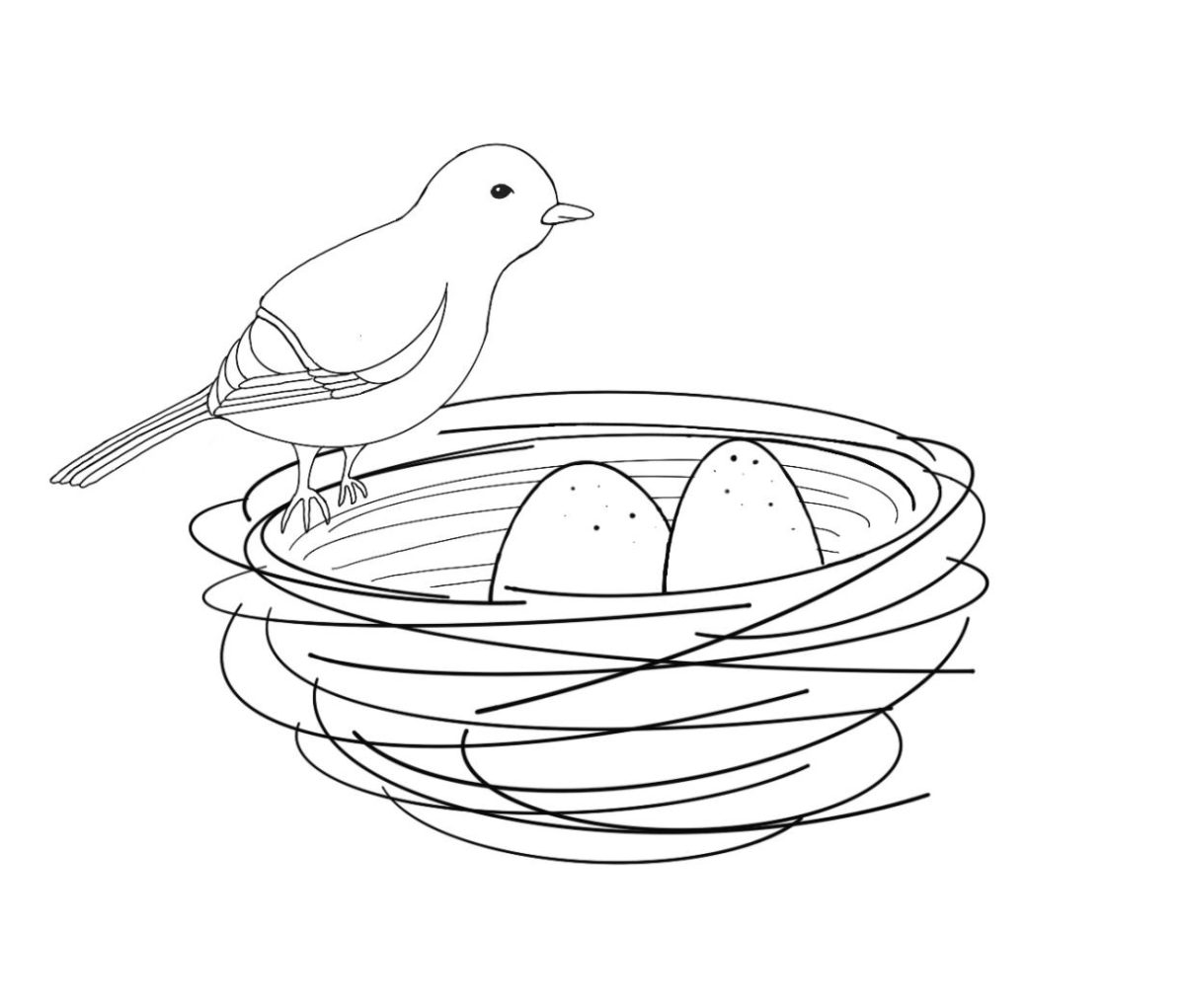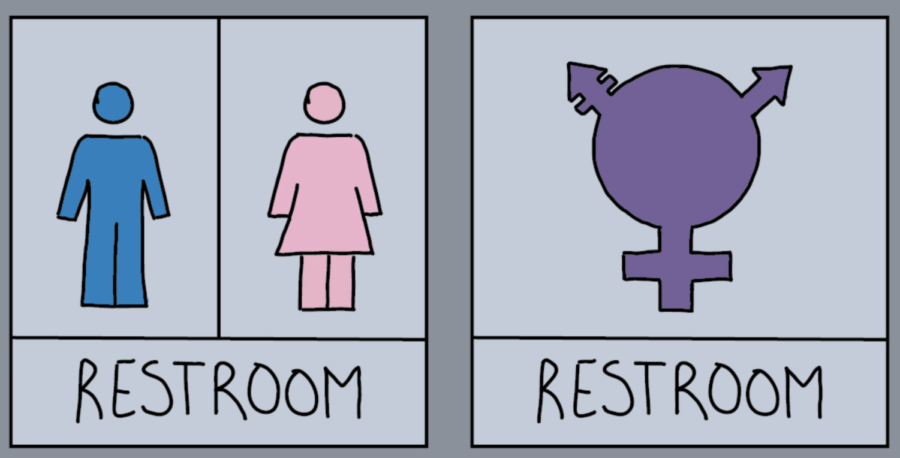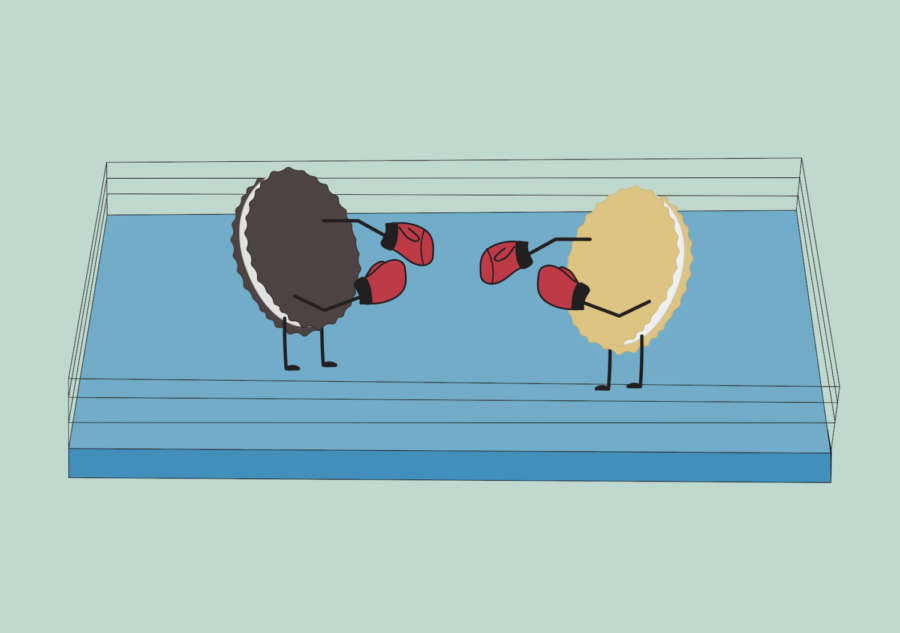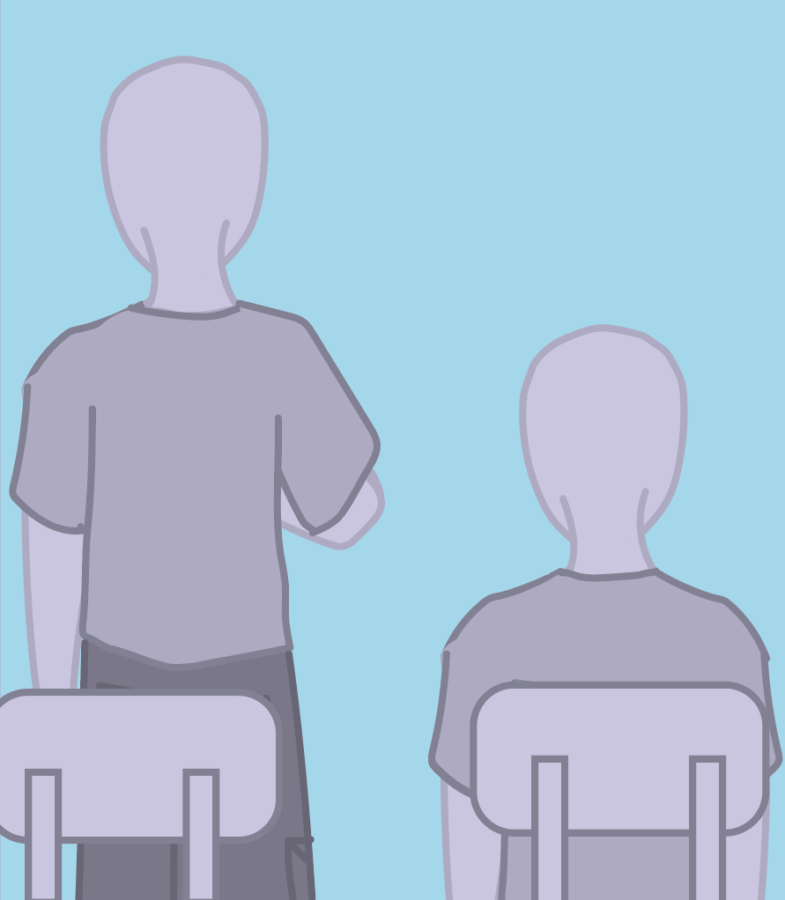Point: Go Greek!
Greek life is known for empowering its members by enhancing their college experience with friendship, service and support. According to the National Panhellenic Conference for sororities and North American Interfraternity Conference for fraternities, 717,647 undergraduate students were enrolled in Greek life in the 2021-2022 school year. At their core, these organizations make a positive change on college campuses by creating an atmosphere conducive to friendship and community.
In August 2021, TikTok videos under the hashtag #Bamarush went viral, having over 600 million views. These short clips showed students of the University of Alabama giving an overview of their outfits before heading out to sorority recruitment events with their prospective houses. Videos included girls involved in an assortment of captivating activities. Most included performing chants, sitting in elaborate pyramid formations, or taking pledges in front of colossal mansions. The popularity of these videos is unsurprising due to the simple fact that with 80 other peers living under the same roof as you, dressing up in extravagant outfits and planning thrilling events together, every day is filled with an abundance of excitement. The positive social media environment plays a huge role in connecting with future members to showcase each house’s unique core values.
Every sorority and fraternity has an international and/or local non-profit organization they support with either money or volunteers. Efforts can benefit a variety of initiatives, including cancer research, women’s health, children’s rights and literacy, and more. In 2021, sororities contributed more than $34 million to philanthropic organizations and volunteered nearly one million hours. Fundraising and volunteering are an essential part of Greek life participation. It teaches students how to organize successful philanthropic projects, and it empowers members by emphasizing more active allyship and service to the broader community.
Results from a 2021 nationwide survey conducted on behalf of the National Panhellenic Conference and North American Interfraternity Conference showed strong correlation between Greek life membership and general life advancements. The survey indicated that more than half of fraternity and sorority alumni found jobs within two months after graduation whereas only 36% of non-affiliated alumni were employed. These advantages come from having an affiliation with a sorority or fraternity that connects members to a lifetime resource of alumni. The mutual benefits between Greek life alumni and current members puts members a step ahead of other students. Whether in career networking, professional development, advice or funding for philanthropic projects and scholarships, Greek life connections continue to provide members with invaluable opportunities throughout their lives. This research reaffirms that Greek life strengthens students into well-rounded individuals and further accelerates their ability to thrive after graduation.
It can be a misconception that Greek life is expensive, but the financial assistance that organizations can provide to their members is a crucial advantage. Nearly $7 million in scholarships were awarded to members in 2021. Furthermore, housing for sororities and fraternities vary by each Greek organization, but overall the costs are drastically less than living in a dorm. For example, at the University of Washington, some dorms can cost upwards of $5,000 per quarter. In contrast, sororities only cost $3,000 per quarter. This fee includes rents, utilities, cleaning staff, a professional in-house chef and other amenities exclusively available to Greek life.
Students’ everyday lives positively emulate the values of Greek life. Members take pride in leadership, friendship and philanthropy. According to the same previously cited survey, 84% of affiliated alumni say that if they went back in time, they would still join a sorority or fraternity. Greek life goes beyond the scope of solely partying — they’ve become an integral part of campus life, going above and beyond to provide a support system for each of their members and push for positive change.
Counterpoint: No Greek!
Sororities and fraternities have become a popular path for incoming college freshmen. Greek life is often seen as a way to have some fun in the stressful college environment. In reality, these Greek organizations have transitioned from a way to meet new people to essentially a time-consuming and costly way to pay for a social life that is more prone to negative consequences.
While some colleges have attempted to curb the traditional perception that Greek life is party central, fraternities and sororities are still commonly involved in lots of parties and drinking. In fact, the National Criminal Justice Reference Service found that about 1,400 fraternity members die from alcohol-related causes each year.
Joining a fraternity or sorority will often lead to a massive time commitment outside of normal college life. During the orientation period, which can last for around six weeks, nearly all hours outside of class are spent in meetings or completing tasks. During orientation, hazing often occurs as part of initiation rituals. Many new fraternity and sorority members submit to physical, emotional and psychological manipulation to join Greek organizations. Hazing is technically forbidden, but the reality is that it still happens and is fairly widespread. According to Franklin College journalism professor Hank Nuwer, at least one hazing death has occurred on a North American campus every year since 1959, with the vast majority having resulted from forced binge drinking. After the orientation period is over, the time commitment is still significant. Most organizations require members to attend weekly meetings throughout the year. In fact, some organizations impose fines on members who miss meetings. Additionally, there are conventions, parties and service dates at which attendance is required regardless of what else a student may have to do.
The history of sexual, mental and physical abuse within these organizations is hard to ignore. A study by the National Criminal Justice Reference Service found that 70,000 cases of sexual assault occur in fraternity houses annually. It also found that men rape or attempt to rape 2 in 5 sorority women. The National Institute of Health found that men are 74% more likely to rape sorority women than other college women. Additionally, a study published in 2007 by John D. Foubert found that fraternity men were three times more likely to commit rape than other men on college campuses. Nationwide, students are also rallying around the slogan “Abolish Greek Life,” a movement aimed to bring light to anonymous student testimonies on sexual assault as well as informational slides on the many human and financial costs of the system.
The price of membership to get into Greek life can be one of the largest expenses in one’s college budget. Withfrank.org, a popular website to help students navigate through college more easily, stated that the cost of going Greek typically ranges from $600 to $6,000 per semester. This sum includes local dues, national chapter dues and national insurance, but other fees such as merchandise, membership pins and event costs may not be included in the price tag. One of the biggest factors contributing to the differing costs is the national organization insurance bill; organizations which have a history of alcohol violations or deaths will usually pay astronomical amounts for insurance.
Greek life may seem like the obvious path to choose to quickly make new friends after moving to a completely new environment either in or out of state, but there are cheaper and safer alternatives. The simplest and easiest option is to connect with roommates, classmates and people living on the same floor or in the same building in dorms. Another easy way to connect with people is by joining clubs. Clubs provide the same level of social life that Greek life provides as well as a free opportunity to pursue any interests.
The risks of joining are not worth the price tag, physically or financially. Clubs offer a free and safe environment to have some fun in the demanding life that college gives. There are other ways to achieve social connections while having a healthier climate.


















